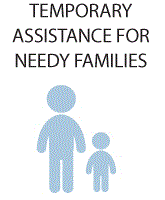Last week, six Councilmembers introduced legislation aimed to ensure that DC’s welfare program — Temporary Assistance for Needy Families (TANF) — protects children from hardship and helps their parents succeed. The bill reforms DC’s rigid TANF time limit to be consistent with approaches taken in most states — giving more time to parents who face big barriers to employment or who are doing everything they can but cannot find a job. Additionally, the bill ensures that children are not pushed deeper into poverty, which would threaten their chances of future success. 
The District has made tremendous progress recently to improve its TANF program, through more individualized services and reduced wait times for employment services. As a result, the number of parents engaged in work preparation activities has doubled in recent years.
But DC’s current rigid time limits threaten this progress. Many families have spent most of their time on TANF receiving poor quality services or no services at all. And even with the best services, some families facing deep barriers — like domestic violence, a disability, or literacy problems — need time to address these barriers. Yet under current rules, all families lose assistance after 60 months, regardless of their readiness to succeed without it.
The legislation builds on the recent progress by modifying the time limit to ensure that families aren’t kicked off TANF without being put on the road to self-sufficiency. The District would continue to provide benefits to families who face low literacy, homelessness or other barriers that have gotten in the way of getting a job. And families who have been “playing by the rules” and doing everything they can but still cannot find a job would also continue to receive benefits and employment services. The legislation would protect children by continuing benefits to ensure they do not fall into deeper poverty.
Without changes like these, thousands of DC families would find themselves with no source of support and little chance of replacing the lost income. This would strain other costly programs such as homeless services and the child welfare program. The resulting financial stress and instability would have long-lasting negative effects on children — research confirms that the stresses of poverty
negatively affect brain development and cognitive skills of children, with long-term effects on school success and future employment as an adult.
This legislation is a chance to strengthen the TANF program and make sure that families facing the greatest odds in our city have the basic supports they need to get on a path to greater independence.
To print a copy of today’s blog, click here.
